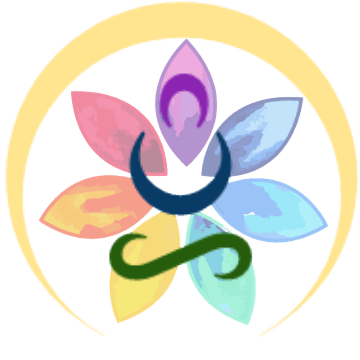Self-Love as a Conscious Practice
"Self-love is not a destination to reach; it is a lifelong journey of embracing our worth, nurturing our souls, and finding joy in the beautiful messiness of being human." - Ananda Experience

Self-love, as a practice of conscious living, is a transformative journey that involves cultivating a deep and genuine sense of appreciation, acceptance, and compassion for oneself. It goes beyond superficial acts of self-care and encompasses a profound understanding of one's inherent worth and value as a human being. Embracing self-love as a way of life requires mindfulness, intentionality, and a commitment to nurturing the relationship we have with ourselves.
At its core, self-love involves acknowledging and embracing all aspects of who we are, including our strengths, weaknesses, past experiences, and future aspirations. It is a recognition that we are worthy of love, respect, and happiness, regardless of external circumstances or societal expectations. Self-love encourages us to treat ourselves with the same kindness, understanding, and forgiveness that we readily offer to others.
Developing Self-Awareness
The first lesson in the practice of self-love is developing self-awareness. Self-awareness involves consciously observing and understanding our thoughts, emotions, and physical sensations without judgment. It requires cultivating a deep level of introspection and reflection to gain insight into who we truly are.
By paying attention to our inner experiences, we become attuned to our needs, desires, and boundaries. We start to recognize the patterns, beliefs, and behaviors that shape our lives. Self-awareness enables us to identify the thoughts and emotions that contribute to our well-being or hinder our growth.
Through self-awareness, we can make conscious choices that align with our authentic selves. It empowers us to make decisions based on our values, aspirations, and true desires, rather than being driven solely by external influences or societal expectations. We learn to trust our intuition and listen to our inner voice, even when it contradicts popular opinions or goes against the grain.
Developing self-awareness also involves acknowledging and embracing all aspects of who we are. It means recognizing our strengths and celebrating them, as well as acknowledging our weaknesses and areas for improvement without self-judgment. Self-awareness allows us to have a realistic and holistic view of ourselves, fostering self-acceptance and self-compassion.
By practicing self-awareness, we become active participants in our own lives, consciously shaping our experiences and embracing our uniqueness. It becomes the foundation for personal growth, transformation, and the cultivation of a deeper sense of self-love.
Cultivating Self-Compassion
The second lesson in the practice of self-love is cultivating self-compassion. Self-compassion involves treating ourselves with kindness, understanding, and empathy, particularly during challenging times or when we make mistakes. It is an essential aspect of self-love, as it creates a nurturing internal environment that supports our growth, healing, and personal development.
To cultivate self-compassion, we shift our mindset from self-criticism to self-kindness. Instead of berating ourselves for our perceived flaws or shortcomings, we offer ourselves understanding, patience, and forgiveness. We recognize that setbacks, failures, and mistakes are natural parts of the human experience and opportunities for learning and growth.
Here are some key aspects of to cultivating self-compassion:
Embracing Imperfection
Self-compassion involves embracing our imperfections and recognizing that they are an inherent part of being human. Instead of striving for perfection or comparing ourselves to unrealistic standards, we learn to accept ourselves as whole and worthy, despite our flaws or mistakes. This acceptance creates a foundation of self-love that allows us to grow and learn from our experiences.
Self-Talk and Inner Dialogue
Developing self-compassion requires paying attention to our self-talk and inner dialogue. We become aware of the language we use when we speak to ourselves, replacing self-criticism with self-compassion. Rather than berating ourselves for our shortcomings or failures, we offer words of understanding, encouragement, and support. By nurturing a compassionate inner dialogue, we cultivate self-love and build ourselves up instead of tearing ourselves down.
Offering Self-Forgiveness
Self-compassion includes the practice of self-forgiveness. It means letting go of past mistakes or regrets and offering ourselves forgiveness and understanding. We recognize that we are human, fallible beings who are bound to make errors. Self-forgiveness liberates us from the burden of guilt and self-blame, allowing us to move forward with compassion and self-love.
Extending Kindness
Self-compassion involves extending kindness and nurturing to ourselves. This can be done through various self-care practices, such as engaging in activities that bring us joy, setting boundaries to protect our well-being, or engaging in self-soothing techniques during times of distress. By prioritizing our own well-being and treating ourselves with the same care and consideration we would offer to a loved one, we reinforce our sense of self-worth and cultivate self-love.
Prioritizing Self-Care
The third lesson in the practice of self-love is prioritizing self-care. Self-care goes beyond superficial acts of pampering or indulgence; it encompasses a holistic approach to nourishing and attending to our physical, emotional, and mental well-being on a consistent basis. By making self-care a non-negotiable part of our routine, we send a powerful message to ourselves that our needs matter and deserve attention.
To prioritize self-care, we engage in activities that replenish and restore us, promoting overall well-being and inner balance. Here are some key aspects of self-care:
Physical Self-Care
Physical self-care involves taking care of our bodies through nourishing food, regular exercise, and adequate rest. It means honoring our physical needs by listening to our body's signals for rest, movement, and nourishment. Engaging in activities such as yoga, walking in nature, getting enough sleep, or having a balanced and nutritious diet supports our physical well-being, energy levels, and vitality.
Emotional Self-Care
Emotional self-care focuses on nurturing our emotional well-being. It involves acknowledging and validating our emotions, expressing ourselves authentically, and seeking support when needed. Emotional self-care can include journaling, talking to a trusted friend or therapist, practicing mindfulness or meditation, or engaging in activities that bring us joy and emotional fulfillment.
Mental Self-Care
Mental self-care is about taking care of our cognitive well-being. It involves engaging in activities that stimulate and challenge our minds, promoting mental agility and resilience. This can include reading, learning new skills or hobbies, engaging in creative pursuits, or practicing mindfulness and meditation to cultivate mental clarity and reduce stress.
Spiritual Self-Care
Spiritual self-care is centered around nurturing our connection to something greater than ourselves. It involves engaging in practices that foster a sense of meaning, purpose, and inner peace. This can be achieved through meditation, prayer, spending time in nature, practicing gratitude, or engaging in activities that align with our values and beliefs.
By prioritizing self-care, we demonstrate a commitment to our own well-being and self-love. It is not a selfish act but rather an act of self-respect and self-preservation. When we prioritize self-care, we replenish our inner resources, reduce stress, and increase our capacity to show up fully in our lives and relationships.
It's important to remember that self-care is a personalized practice. What works for one person may not work for another. It requires self-awareness to identify our individual needs and preferences. By regularly assessing and adjusting our self-care practices, we can ensure that they remain effective and supportive of our well-being.
Setting Boundaries
The fourth lesson in the practice of self-love is setting healthy boundaries. Boundaries are essential for maintaining our well-being, protecting our energy, and nurturing our self-love. They involve defining what is acceptable and unacceptable in our relationships, interactions, and commitments, and honoring our own needs and desires.
Here are some key aspects of setting boundaries:
Identifying Boundaries
Once we have a sense of our own needs and limits, we can identify the boundaries we want to set. This involves recognizing what behaviors, actions, or situations are crossing our personal boundaries and causing discomfort or harm. Boundaries can be physical, emotional, or even time-related, and they may vary depending on the context or relationship.
Communicating Boundaries
Setting boundaries requires effective communication. It's important to express our boundaries clearly and assertively, using "I" statements to convey our needs and expectations. Open and honest communication helps others understand and respect our boundaries, fostering healthier and more fulfilling relationships.
Honoring Boundaries
It's not enough to set boundaries; we must also honor them. This means enforcing the boundaries we have established and not compromising our well-being or values for the sake of others. Honoring our boundaries requires self-respect, self-advocacy, and the willingness to prioritize our own needs even when it may be uncomfortable or unpopular.
Saying "No" with Confidence
Setting boundaries often involves saying "no" when necessary. It's important to remember that saying "no" is not selfish; it is an act of self-care and self-preservation. By setting clear limits on what we are willing and able to do, we protect our energy, time, and overall well-being. Learning to say "no" with confidence and without guilt is a powerful act of self-love.
By setting healthy boundaries, we create a safe and empowering space for self-love to flourish. Boundaries help us maintain our autonomy, protect ourselves from emotional harm, and establish healthy dynamics in our relationships. They enable us to prioritize our well-being, respect our own needs, and make choices that align with our values and aspirations.
Summary
Ultimately, practicing self-love as a conscious way of living is an ongoing process. It requires patience, perseverance, and a willingness to prioritize our own well-being. It is not about achieving perfection but rather embracing our imperfections and embracing ourselves as whole, complex beings. By practicing self-love, we embark on a journey of self-discovery, personal empowerment, and unconditional acceptance, allowing us to live a more authentic, fulfilling, and joyful life.



